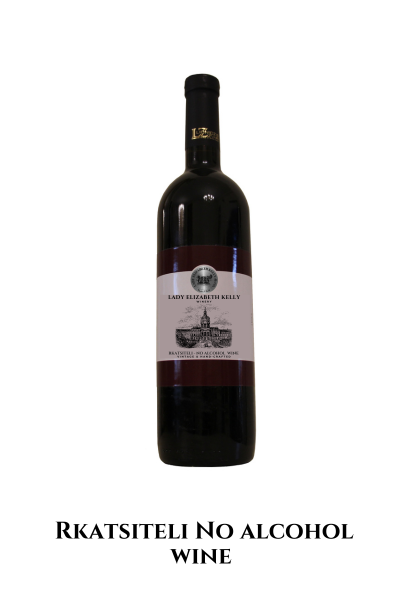rkatsiteli - no alcohol wine

Non-alcoholic wines made from Saperavi grapes and Rkassiteli grapes in Georgia typically follow a process that removes the alcohol while preserving the grape’s flavors. Here’s a simplified overview of the method:
1. *Grape Selection*: The process begins with the careful selection of Saperavi and Rkatsiteli grapes, which are known for their deep red color and rich flavors.
2. *Crushing and Pressing*: The grapes are crushed and pressed to extract their juice, much like traditional winemaking.
3. *Fermentation*: This is where non-alcoholic wine-making differs from the standard process. Instead of allowing natural fermentation with yeast, the juice is typically rapidly chilled to halt the fermentation process, preventing the conversion of sugars into alcohol.
4. *Filtration*: The juice is then carefully filtered to remove any remaining yeast or sediments and to clarify the liquid.
5. *Dealcoholization*: The crucial step in creating non-alcoholic wine is the removal of alcohol. This can be achieved through various methods such as vacuum distillation, reverse osmosis, or the use of spinning cone columns. These processes separate the alcohol from the liquid while preserving the grape’s flavor compounds.
6. *Blending and Flavor Adjustment*: After the alcohol is removed, the winemaker may need to adjust the flavors to ensure a balanced and pleasant taste, which may involve blending with other components.
7. *Bottling*: The final product is then bottled and sealed, ready for distribution.
This method allows for the creation of non-alcoholic wines that retain the distinct characteristics of Saperavi grapes while ensuring they remain free of alcohol. It’s a process that respects the grape’s heritage and provides an option for those who prefer non-alcoholic beverages.

